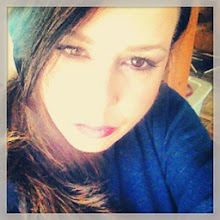
I’m lost. I have to surrender because I don’t always know where I am going. I have no map as to how I must address memory or story. What I do know is that in order to tell a good story I need to think small. The larger pieces have a better chance to find their place in the story. In order to think small I have to slow down long enough to evaluate the whole truth. What creative nonfiction form should I use: memoir, personal essay, prose, literary journalism, nature essay etc.? With poetry as my first language, I know I must rely on what feels like a metaphoric journey, with the gift of being more fluid than water itself. It’s this watery past—often referred to as a “moving image” that must be slowed down long enough to catch a glimpse of what it wants me to see—even if they arrive fragmented and bias. Regardless of which creative nonfiction form I choose (or surrender to) I still must decide what it to focus on, and what to leave out. It’s a matter of remembering and forgetting. I am, in turn, celebrating something that would have otherwise been forgotten, and in the act of writing, I am no less, confirming, perhaps even celebrating the experience. This much I know to be true. Before I take on any creative nonfiction task, I remind myself that it’s the incidents or the situations that create story and this is point I go small and weave myself into my translation of the story. These situations presents the context or circumstances, often times the hidden plot.
As I became seduced into the world of creative nonfiction writing, it was in nature writing that found my true calling; here in this solace place of pace, I found an array of writers who posed bigger questions in their writing, like Walt Whitman—not just his foundational poetry, but the records of eloquent and insightful prose; Annie Dillard, Lisa Knopp, Robert Root, Scott Russell Sanders, and Kim Barnes—to name of few, and all of whom have impacted not only the way I see the world, but how I respond to it.
The attempt of the nature essay is to pose bigger questions about the world around the writer. The goal of the essay is not to describe in detail about what the writer is observing, but to open up the channels on larger subjects, make connections, and make note between the worlds within the world they are observing. One must be excellent observer.
“No one ever gets tired of the moon. Goddess that she is by dower of her eternal beauty, she is a true woman by tact—knows the charm of being seldom seen, of coming by surprise and staying but a little while; never wears the same dress two nights running, nor all night the same way; commends herself to the matter-of-fact people by her usefulness, and makes her uselessness adored by poets, artists, and all lovers in all lands; lends herself to every symbolism and to every emblem; is Diana’s bow and Venus’s mirror and Mary’s throne; is a sickle, a scarf, an eyebrow, his face or her face, as look’d at by her or him; is the madman’s hell, the poets heaven, the baby’s toy, the philosopher’s study; and while her admires follow her footsteps, and hang on her lovely looks, she knows how to keep her woman’s secret—her other side—unguess’d and unguessable,” (Whitman, Walt. “Whitman: Poetry and Prose.” Specimen Days. Library of America College Editions, 1996. 851-852).
Perhaps Whitman’s keen account of the world around him (displayed through his poetry, prose, and essays) set the pace and influenced some of the world’s highly recognized essays not only on nature, but in the courageous act of finding one’s way through creative nonfiction.
[1] Annie Dillard in Pilgrim At Tinker Creek refers in her book to Stewart Edward White having said, “I have always maintained that if you looked closely enough you could see the wind—the dim, hardly-made-out fine debris fleeing high in the air.” Dillard referred to White having been an “excellent observer.”
[1] Annie Dillard in Pilgrim At Tinker Creek refers in her book to Stewart Edward White having said, “I have always maintained that if you looked closely enough you could see the wind—the dim, hardly-made-out fine debris fleeing high in the air.” Dillard referred to White having been an “excellent observer.”







1 comment:
Very nice - I imagine that you kinda feel like you're on a roller coaster or perhaps floating down a river, leaving your pace and direction to the forces that are moving you.
Post a Comment